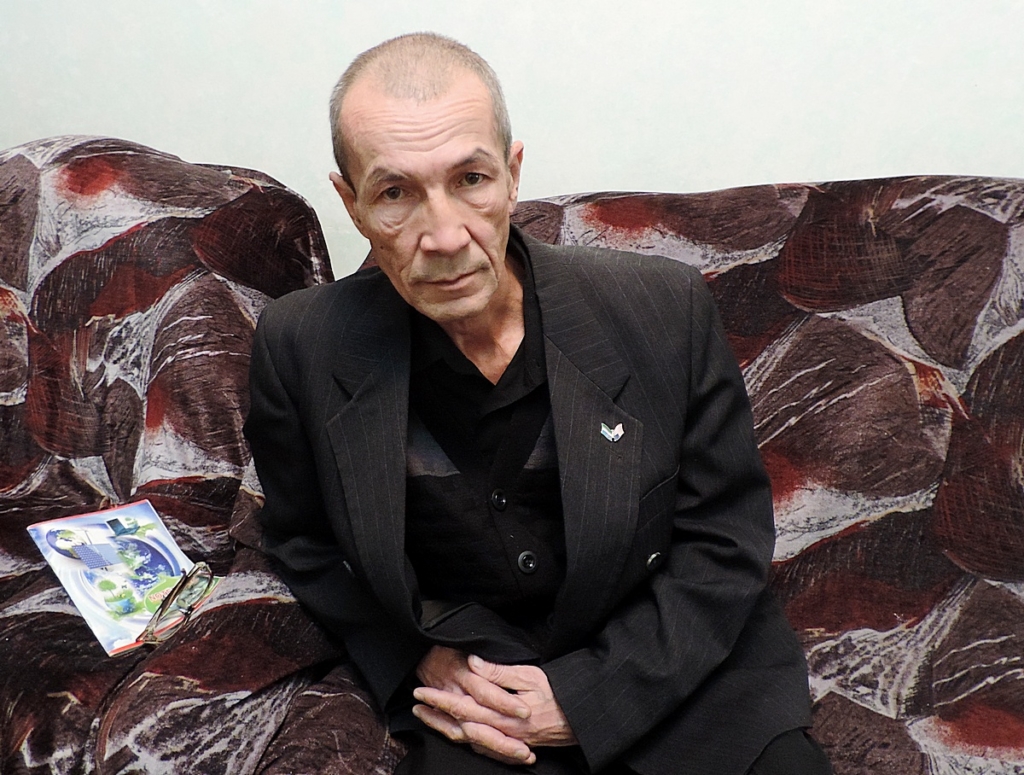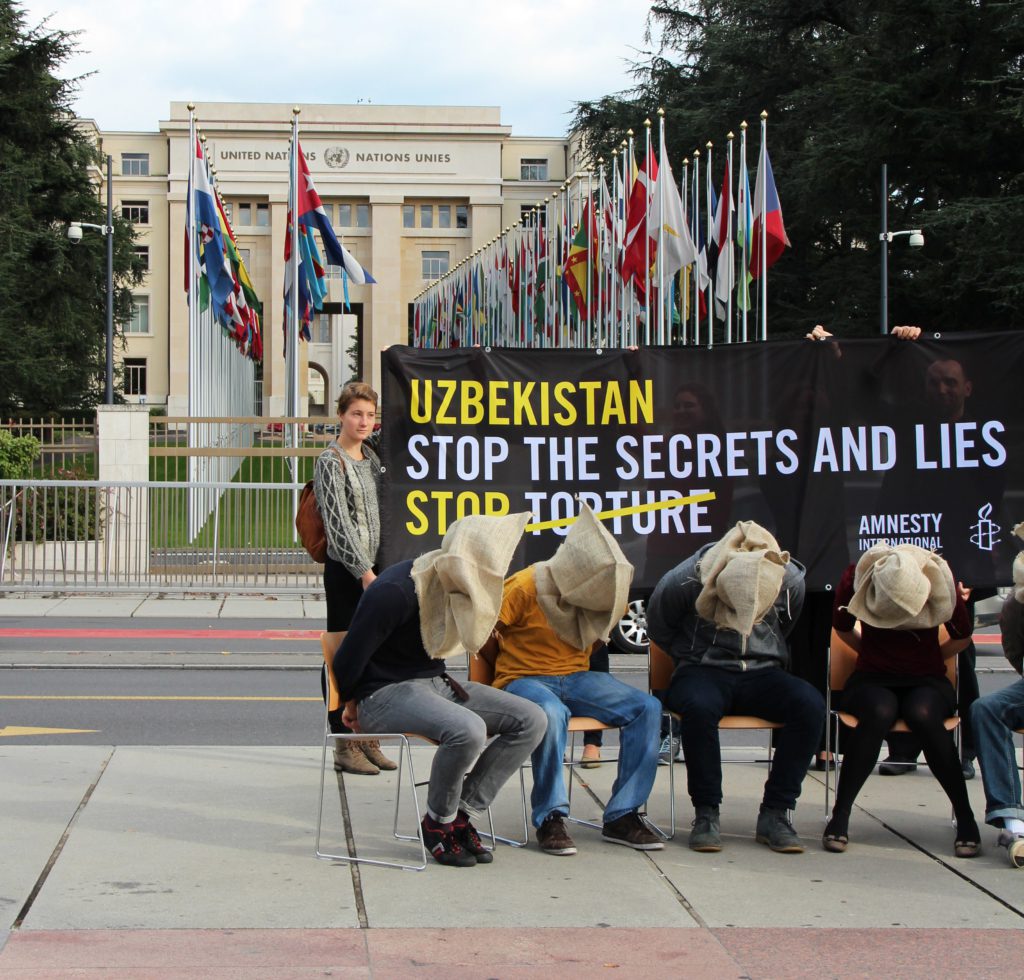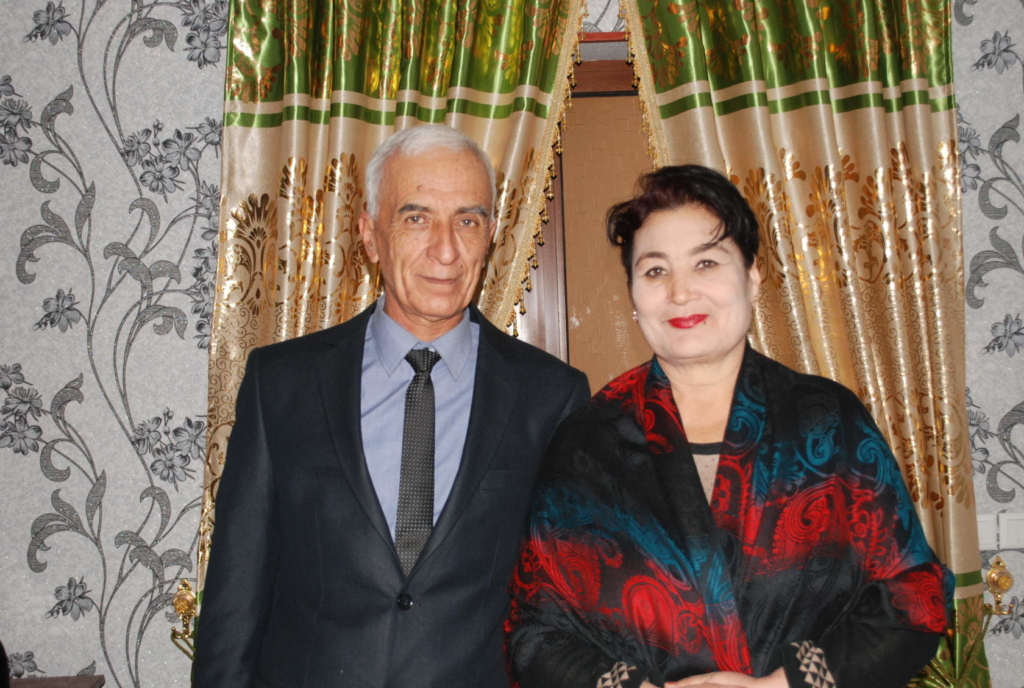Working on human rights in Uzbekistan has always been a challenge as there is never a shortage of flagrant human rights violations.
On 3 February journalist and human rights activist Dilmurod Saidov (Sayyid) was released from prison early – for many this is yet another sign that things are changing in Uzbekistan. In his first interview after his release, Dilmurod told journalists that he had been subjected to psychological and physical torture in prison. In order for the new authorities to really demonstrate their commitment to upholding international human rights obligations, it is important to ensure that all allegations of torture and other ill-treatment are investigated effectively, and that those responsible are brought to justice.

The 2017 end-of-year address to parliament by President Shavkat Mirzioiev, who has been in power since September 2016, was celebrated by many, including some of his critics and those sceptical of his reforms. In his address the President put emphasis on strengthening democratization, the rule of law, and justice. For a country in which the authorities, under the previous president Islam Karimov, consistently disregarded the rule of law and human rights, this was very welcome news.
However, when looking more closely at what is actually happening in Uzbekistan the picture is not so bright. Over the past year we have seen the tragic death of former parliamentarian Murad Dzhuraev who unjustly spent 21 years in prison, and the case of Bobomurod Abdullayev, an independent journalist who has been detained at one of the most notorious detention centres in the country since September 2017, for allegedly writing anti-government articles.
After years of campaigning we saw the death penalty abolished in Uzbekistan in 2008, but other serious human rights violations persist, including torture or other ill-treatment, and egregious violations of freedom of expression, peaceful assembly, association and religion.
Torture in Uzbekistan

In 2015 we launched our global Stop Torture campaign with Uzbekistan as one of the countries of focus. Our work exposed the far-reaching extent of torture carried out by the Uzbekistani security forces. For over two years, we campaigned and urged the President to require legislation to be amended to prohibit the use of torture to obtain testimony or confessions, and the use of torture-tainted evidence in court.
On 30 November 2017, we learned that President Mirzioiev had signed a decreeprohibiting the use of evidence obtained under duress. This is an important step in the right direction to eliminate torture or other ill-treatment in the country, but it is just the beginning of a much longer journey.
Murad Dzhuraev
On 4 December our sense of achievement was cut short when we learned that Murad Dzhuraev, a former parliamentarian had passed away. No words can describe the shock and sadness that we felt when we received this news. Only a few months earlier we celebrated the fact, that after a long and complicated process, Murad was finally granted permission to travel abroad to receive critical medical treatment.
Murad was convicted of “anti-state crimes” on politically motivated charges. In November 2015 he completed a 21-year prison sentence during which he suffered from cruel, inhuman and degrading conditions.

Our thoughts now are with his wife, Kholbika Dzhuraeva, his sons and the rest of his family. Our team met with Kholbika Dzhuraeva back in 2014. A modest and dignified woman, she quietly talked about her husband and his time in prison, and only on rare occasions would she allow herself to be emotional. We could see tears in her eyes when she talked about her biggest wish, to finally be reunited with Murad – and they were, but only for two years before he died.
None of this should have happened.
Murad Dzhuraev should not have been in prison for 21 years, and he should not have been waiting for almost two years to be allowed to travel outside Uzbekistan for essential medical treatment.
Although the current President has taken steps towards the abolishment of the system preventing Uzbekistani nationals from obtaining permission to leave the country, the authorities are continuing to impose travel restrictions on newly released prisoners, like Murad Dzhuraev. Very often, this results in former prisoners, or others critical of the authorities, being prevented from travelling abroad for urgent medical treatment.
The death of Murad Dzhuraev is a huge loss, a loss for his family, a loss for the human rights community, and for Uzbekistan in general. Murad Dzhuraev was one of the few who had the courage to criticise the previous authoritarian government in Uzbekistan and make the country he loved a better place.
President Shavkat Mirzioiev’s changes – are they enough?
President Karimov died on 2 September 2016, after 27 years in power. Arbitrary detention, torture, and other ill-treatment were defining features of the criminal justice system during his presidency. These were the tools by which the Uzbekistani authorities dealt with dissent and maintained their grip on power. Prime Minister Shavkat Mirzioiev was appointed acting President in September 2016 and was elected President on 4 December 2016. Because Mirzioiev was a member of the ruling elite we had little hope that this change in leadership would result in any real improvement of the human rights situation in the country.
But the new President has been trying to convince the international community otherwise. Under his leadership, several prisoners serving long sentences on politically motivated charges were released, some early, including two prisoners of conscience, Salidzhon Abdurakhmanov and Azam Farmonov. In February 2017, he approved an action strategy on long-awaited judicial reform about which we are cautiously optimistic.”
The country has been opening up to international human rights mechanisms, including hosting an unprecedented visit to Uzbekistan by the UN High Commissioner for Human Rights in May 2017 and a two-week mission by the UN Special Rapporteur on freedom of religion or belief in October. A Human Rights Watch delegation was allowed to visit Uzbekistan in September 2017. The authorities granted limited access to the international media, including a BBC team in November 2017 for the first time since 2005.
We welcome these positive steps that the new government of Uzbekistan has taken, but we deplore the tragic case of Murad Dzhuraev, and the cases of many others who continue to languish in prisons, and those who face torture and other ill-treatment from the authorities. A lot more must be done to address the long standing human rights concerns in the country, and those responsible for the past human rights violations should be held accountable.


